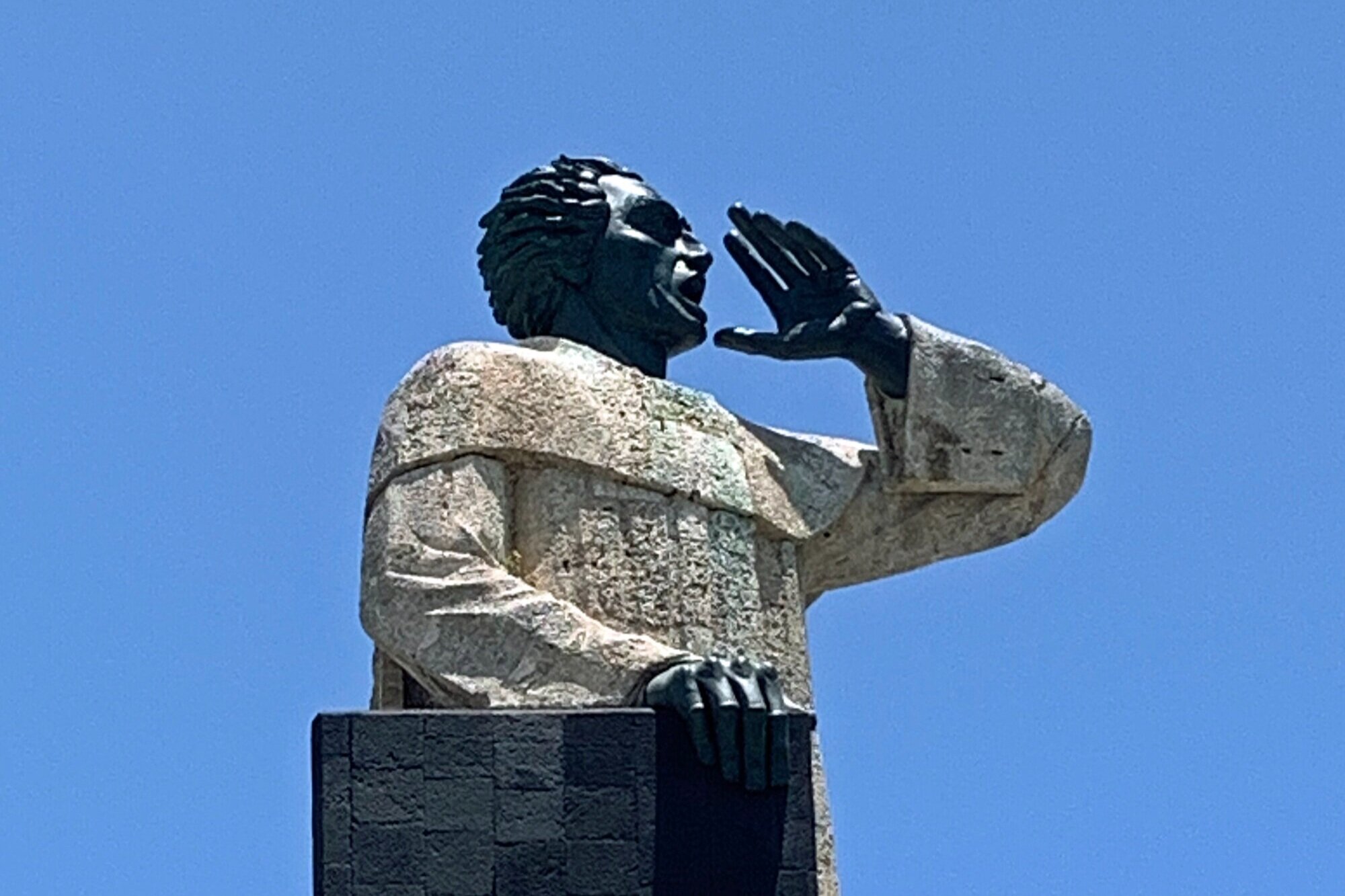Christianity, Empire and the Spirit
Dr. Neomi De Anda talks to Dr. Néstor Medina about his book on (re)configuring faith and the cultural
Statue by sculptor Antonio Castellanos Basich representing Spanish Dominican friar Antonio de Montesinos, Santo Domingo, Dominican Republic, 2019. The 50-foot statue was donated by Mexico to the Dominican people in 1982. Known as the first European to publicly denounce the horrific treatment of indigenous peoples on the island, Fray Montesinos traveled throughout the Americas on a crusade for human rights during the 1500s. He influenced Fray Bartolomé de Las Casas and the first set of international laws concerning universal humanity. Photo: Mario Roberto Durán Ortiz
Tejana scholar/activist Dr. Neomi De Anda talks to Guatemalan-Canadian scholar Dr. Néstor Medina about his book Christianity, Empire and the Spirit: (Re)Configuring Faith and the Cultural (Brill, 2018), a timely work in light of our turbulent and divisive political age, the resurgence of white supremacy, and impinging cultural conflict. Employing an interdisciplinary approach, Dr. Medina explores Protestant and Catholic history and theology in order to arrive at an understanding of culture and of the cultural. He invites us to rethink the phenomena of cultural and cultural processes in their multiple concrete expressions of faith without following inherited Eurocentric theological frames that draw a wedge between human material existence and the reality of the divine. The book is part of Brill’s Theology and Mission in World Christianity book series, which “treats theology, mission, and the interface between them in view of the development of world Christianity.”
Christianity, Empire and the Spirit: (Re)Configuring Faith and the Cultural by Néstor Medina (Brill, 2018)
This is a timely book in light of our turbulent political age embroiled in demagoguery, a resurgence of white supremacy, and impinging cultural conflict in a multicultural society. Medina examines the presuppositions embedded in the idea of culture and seeks to establish a just relationality in the world.
—Daniel Orlando Álvarez (Pentecostal Theological Seminary) in
Perspectivas: The Journal of the Hispanic Theological Initiative




